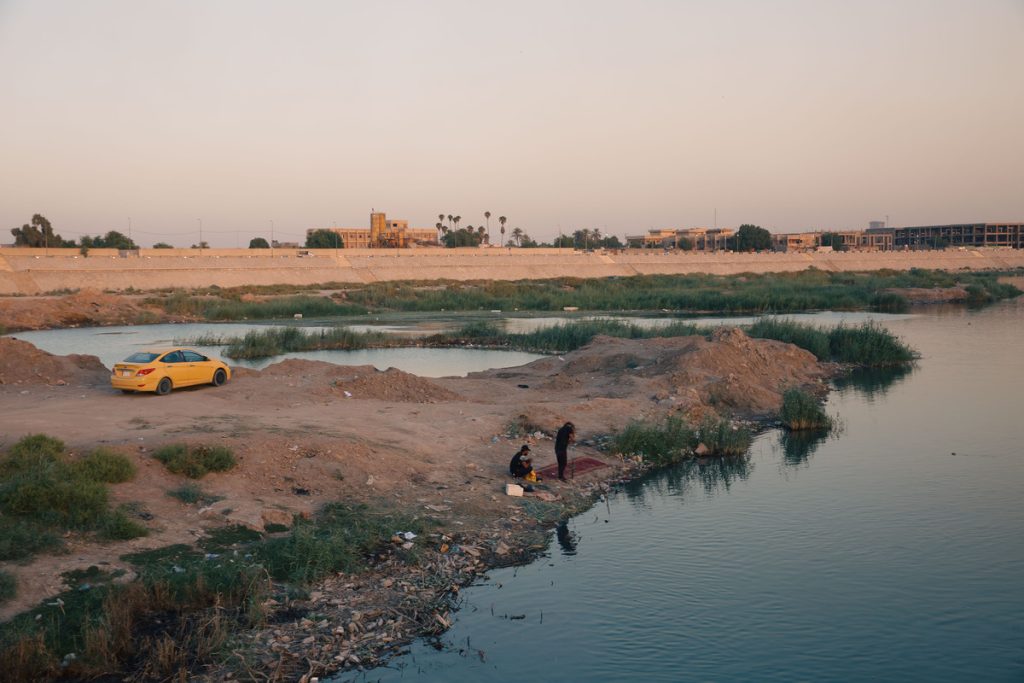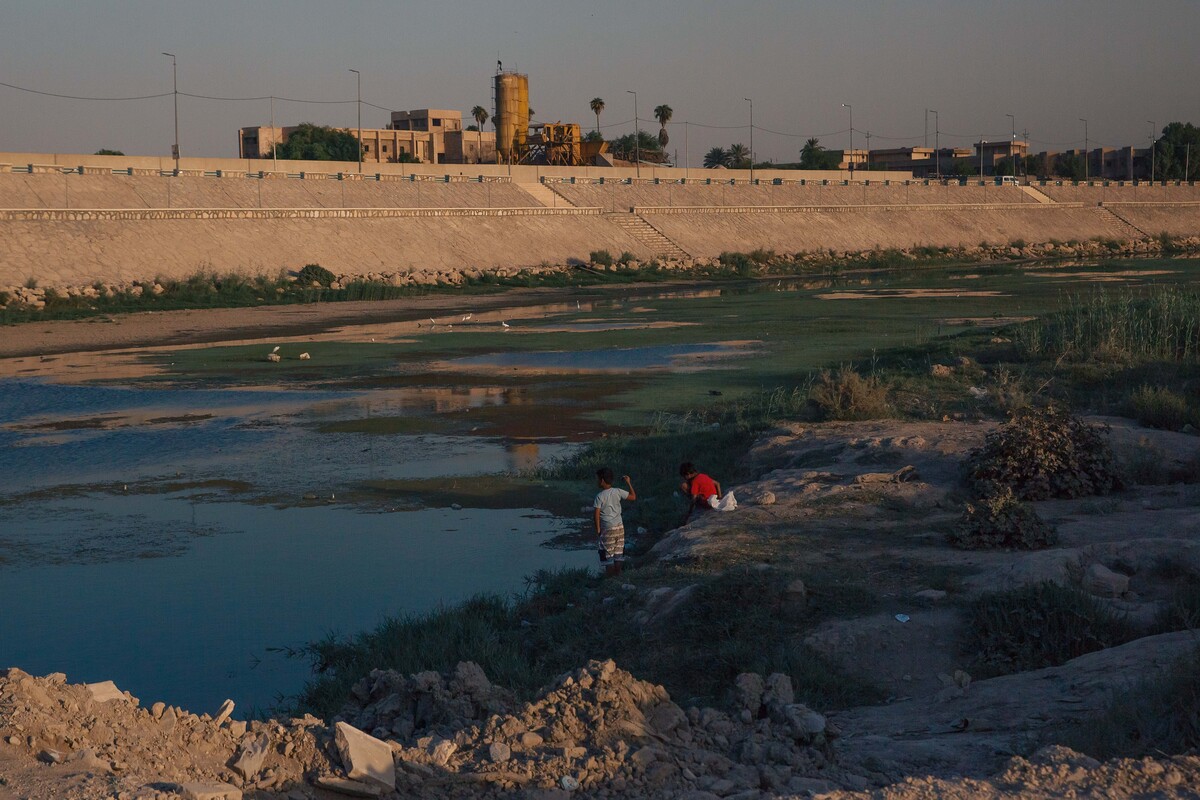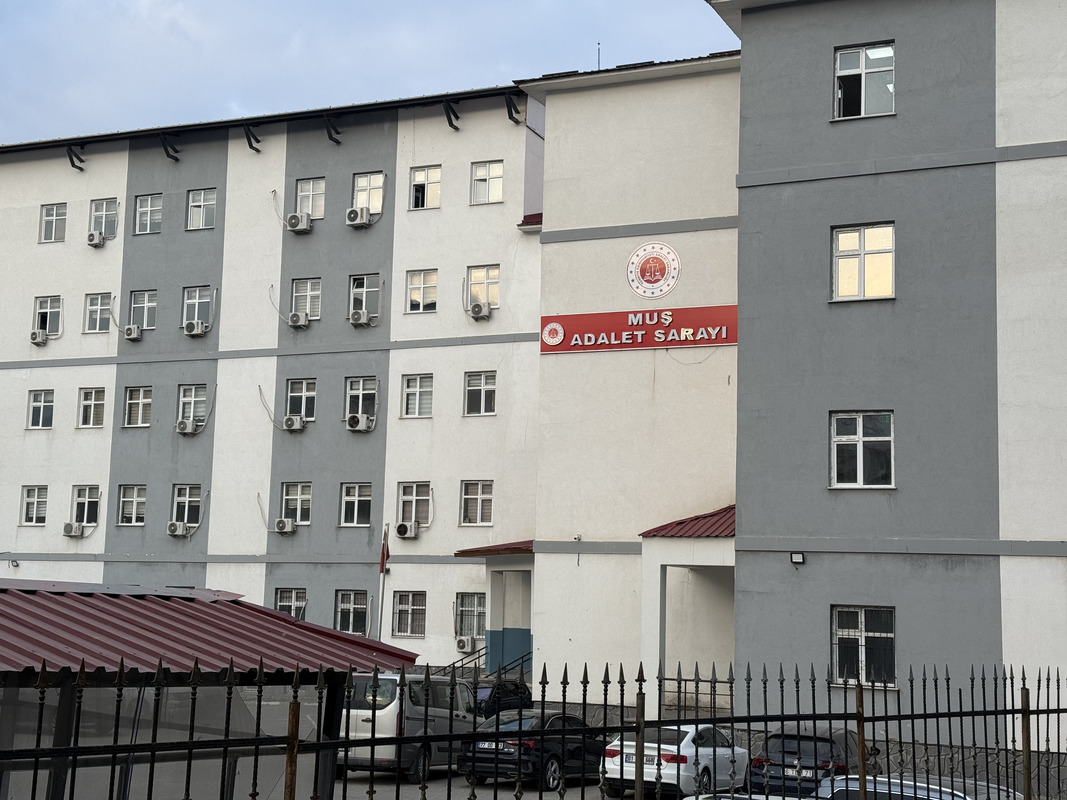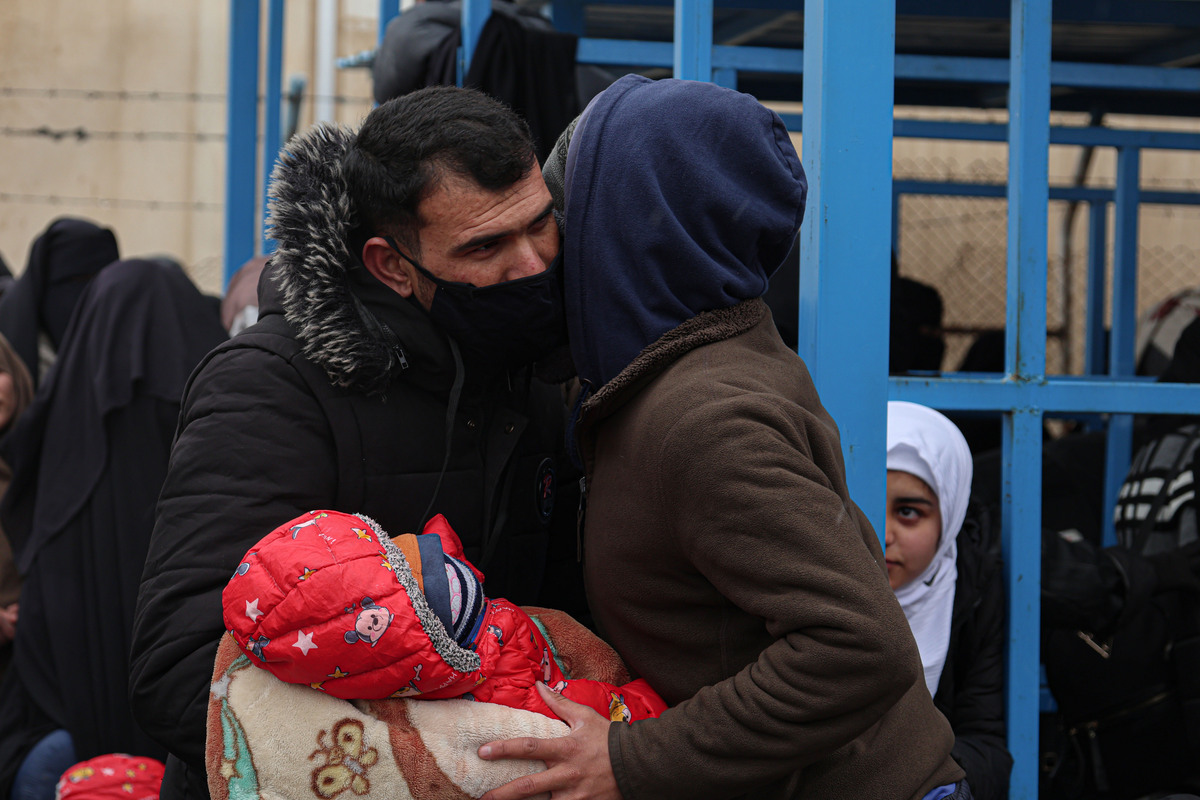In Baghdad, the Tigris is Trapped by Turkish Dams
The Tigris River in Baghdad | Picture Credits: Laurent Perpigna Iban
The summer of 2025, exceptionally hot and dry, saw the Tigris level drop even further in Iraq. In Baghdad, entire stretches of the river lie bare. Once again, eyes turn toward Turkey, accused of holding back the water upstream.
It’s a concern that residents of Baghdad can no longer escape. As their country ranks among the most severely hit by climate change, evidenced by this year’s particularly harsh summer, the Tigris, which cuts through the heart of the capital, is gasping for life. As a result, inhabitants helplessly witness its year-after-year decline, with no sign of relief on the horizon.
Abbas, 60, stands on an artificial island attached to one of the riverbanks north of the city. He insists the island did not exist last year. “It’s a disaster. I don’t know where this situation will lead us, but I fear for the city’s future; it cannot survive without water,” he says.
His fatalism is well-earned. Originally from Amara, a town nestled in the heart of the Mesopotamian marshes, he was forced to leave when the waters receded. That was three years ago. Confronted with severe livestock losses and a lack of economic prospects, he decided to move to Baghdad. “The south of the country has faced increasingly bad droughts for over a decade, and for herders like me, life had become unbearable. That’s why I chose Baghdad over Basra. But I feel this plague catching up with me here,” he says, disillusioned.
In this Baghdad neighborhood, the Tigris is a shadow of its former self and one can almost cross it on foot today. “Everything is happening so fast; I left Amara for a better life, yet I find myself facing the same problems, far from home,” he adds, pointing to the cracked ground beneath his feet.
A few dozen meters away, standing in the middle of the river, Omar, a 35-year-old interior designer, is fishing with a friend. “Ten years ago, we met on the riverbanks; today, we meet in its middle. It’s a tragedy that affects everyone in this city. The cradle of civilization is dying, and no one seems to care.” His friend continues: “I’ve seen the level of the Tigris drop year after year. Nothing is being done to stop it. I’m afraid it will soon become only a trickle.”
To prevent further ecological degradation and halt the desertification of Iraq, Turkey and Iran must release adequate water flows in accordance with international water law and the Ramsar Convention
For Iraqi scientist Souad al-Azzawi, who has worked on this issue for years, climate change, though undeniably playing a role, is not the primary cause of Iraq’s water crisis. “Western media often attribute Iraq’s desertification and the disappearance of its marshlands primarily to climate change, but this is misleading. Rather, it can be attributed to the drastic reduction of inflows from the Tigris, Euphrates, and Shatt al-Arab rivers. To prevent further ecological degradation and halt the desertification of Iraq, Turkey and Iran must release adequate water flows in accordance with international water law and the Ramsar Convention [a global international treaty signed in 1971 in Ramsar, Iran, to protect wetlands]. If the current situation continues, the flow of both the Tigris and Euphrates rivers within Iraqi territory may nearly cease within the next decade.”
Reversing the Trend
Dhay, 30, is part of a new generation of activists trying to raise awareness about these challenges among a populace already battered by decades of war.. According to her, for a region whose prosperity depends on its rivers, the danger is clear. “What has happened in Iraq since 2003 is extremely worrying: we’ve lost over 50% of our water resources. The climate is a detrimental factor, but the main cause remains the dams built by Turkey.”
“Turkey builds its dams without warning Iraq, directly depleting our reserves. This is a violation of human rights, because it deprives millions of people of their right to drinking water.”
Dhay explains that the Ilisu Dam, located in Turkey between Sirnak and Batman and only recently brought to full capacity, is a major part of the problem. “Turkey had been filling and releasing it gradually between 2019 and 2020, but it is now functioning at full capacity, directly affecting Iraq’s share of water and its daily supply. Before this project began, the Tigris and Euphrates flows toward Iraq averaged 500 to 600 cubic meters per second,” she says.
She insists that Iraq’s inaction and resignation in facing Turkey can no longer continue. “No law compels Ankara to ensure a stable flow; it all depends on its goodwill. Turkey builds its dams without warning Iraq, directly depleting our reserves. This is a violation of human rights, because it deprives millions of people of their right to drinking water. This impacts the populace immediately, but also affects agriculture and worsens food insecurity,” she continues.

These concerns are shared by Fadi Comair, diplomat, negotiator, and president of UNESCO’s Intergovernmental Hydrological Programme. “The catastrophe gets compounded by the impact on the region’s water bodies by climate change; temperatures could rise by 4 to 5°C, and river flows could drop by 30 to 40%. Hence, the urgency of finding solutions for transboundary basins.”
But diplomatic sources confirm that Ankara limits itself to informal talks without binding commitments. Is common ground possible? “The idea is to broaden negotiations to include energy and food. As an oil-rich country, Iraq could put that resource on the table. That’s the logic behind hydrodiplomacy: going beyond water alone to build broader agreements,” says Fadi Comair.
Yet would a hypothetical concession from Ankara be enough to address the problem? Activists are doubtful. “We must also take into account Iraq’s internal mismanagement of water and the lack of infrastructure to properly handle its resources. That means even if Turkey gave us our fair share, we wouldn’t be guaranteed good-quality water,” says Dhay.
A River in Peril
In the middle of the river, Jaffar, 50, has also come to fish with a friend. The two men point to the riverbank, where a massive pipe pours the city’s wastewater straight into the Tigris. “The lower the water level gets, the more polluted it becomes,” they explain.
By 2050, a one-degree rise in temperatures could reduce annual rainfall by around 10%, leading to an estimated 20% drop in the country’s available freshwater
“We must face reality. The Tigris rises in Turkey’s Taurus Mountains and also crosses the Zagros range. Every spring, melting snow once fed the river, acting as a safety valve against Turkey’s water retention. But with global warming, the snow cover has drastically shrunk; we are caught in a vicious circle.”
Rainfall, too, is sharply declining; by 2050, a one-degree rise in temperatures could reduce annual rainfall by around 10%, leading to an estimated 20% drop in the country’s available freshwater. All eyes now turn to neighboring Turkey, which is currently building another dam in the Kurdish city of Cizre.
Rising 46 meters and designed to hold a reservoir of nearly 400 million cubic meters of water, this new project is causing deep concern among Iraqi environmental activists. Approved in October 2016, shortly after Turkish military operations devastated much of the Kurdish southeast and triggered a mass exodus in Cizre, it has been developed largely in secret. According to several Iraqi NGOs, “no information has been communicated to the Iraqi government either regarding this project,” or about its possible impact on downstream communities that depend on the Tigris.
While Turkey assured Iraq this year that the latter would receive a discharge of 400 m³ per second, only 120 m³ per second was reached in Iraqi territory. The two countries nonetheless met on 2 November to sign an executive mechanism for their 2024 water-cooperation framework.
These discussions, several activists argue, seem to be unfolding along the lines Fadi Comair suggested: a negotiation framework in which water releases are tied to energy considerations. Rather than establishing a binding treaty, the ‘document’ signed in November may open the door to a formula where Turkey gradually releases water in exchange for discounted Iraqi oil, a revival of the ‘water for oil’ doctrine championed in the 1980s by former Turkish prime minister Turgut Özal.
Doubts, therefore, persist about the true scope of the agreement. As Dhays puts it: “There is a clear manipulation of diplomatic terminology. In his statement, Foreign Minister Fouad Hussein said that Iraq would sign a ‘document’. But if we return to political terminology, a ‘document’ does not necessarily mean an international legal commitment by Turkey before the United Nations to provide continuous and stable water releases to Iraq. It could simply be a cooperation or understanding memorandum that does not rise to the level of a binding agreement between two states.”
She concludes, “I am not optimistic at all. This document simply does not meet the expectations of the Iraqi people. We are likely to see a formula that is neither clearly discussed nor presented: the volume of water Turkey releases to Iraq will depend on Iraq’s oil sales. Turkey, in turn, will secure a significant gain: Turkish construction companies will enter Iraq’s water-management sector at discounted prices. Otherwise, Turkey would never have agreed to sign this ‘document’.”
Laurent Perpigna Iban
Amargi Columnist




